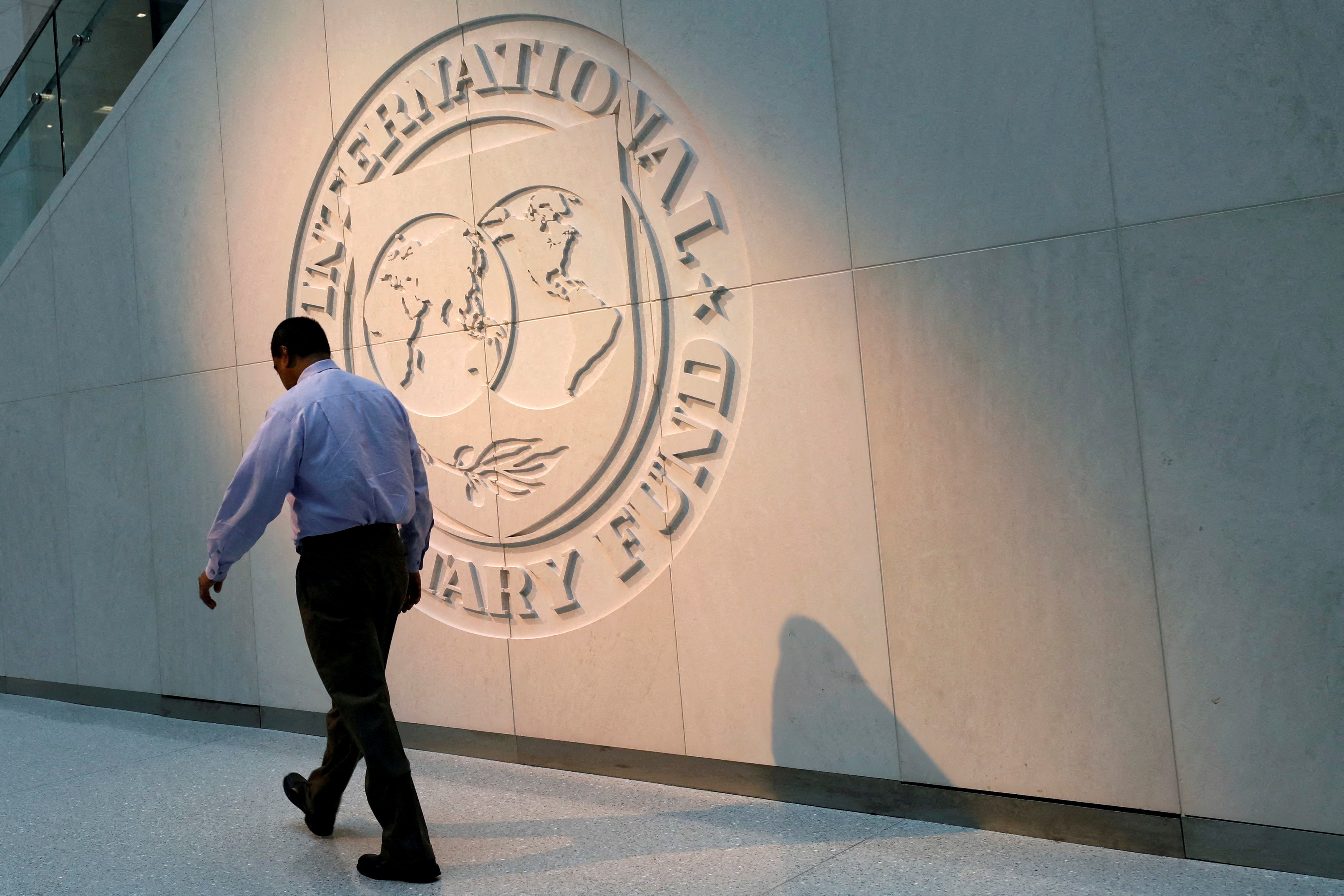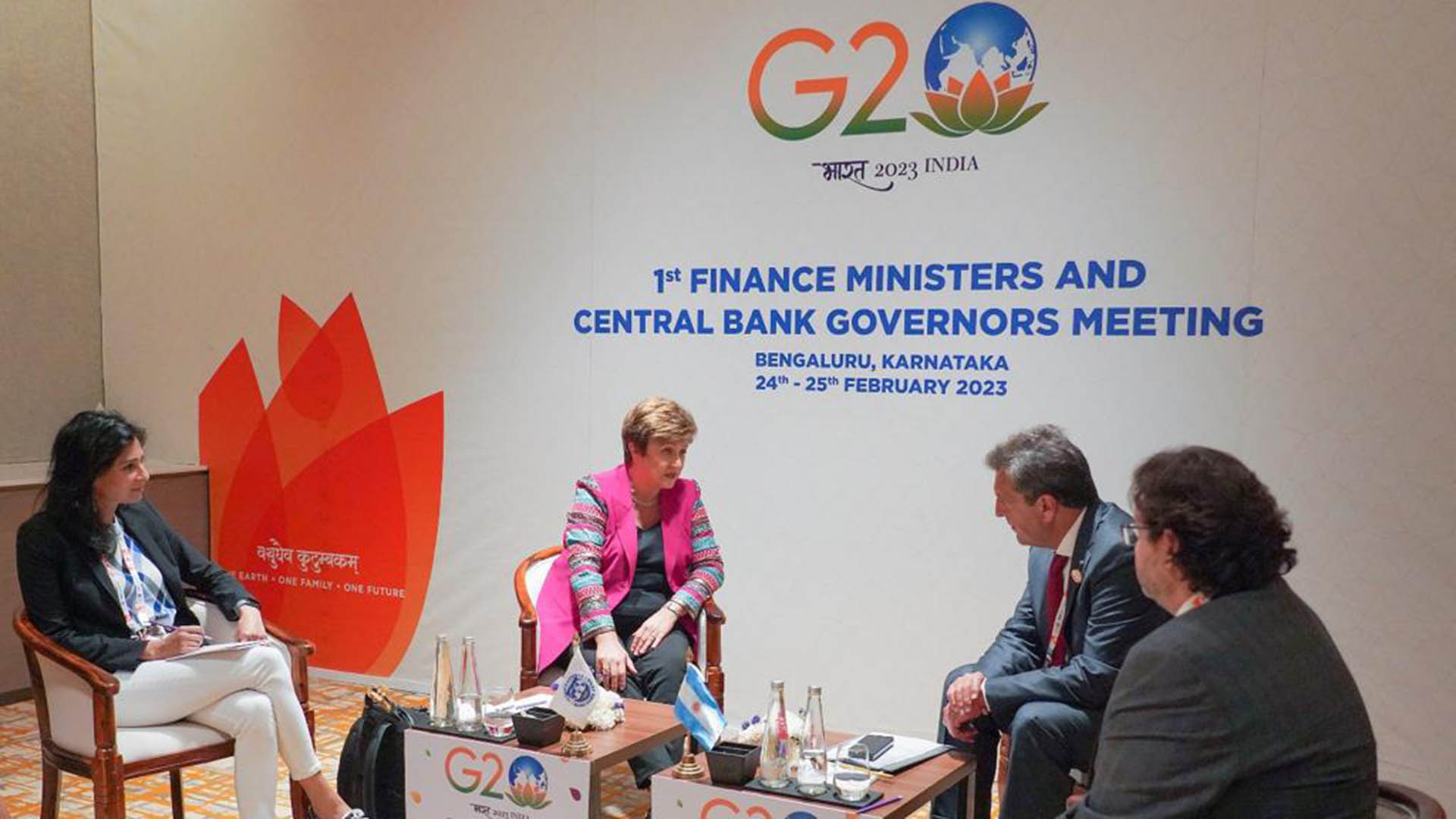The International Monetary Fund formalized the cut in the reserve accumulation requirement for the first quarter but will require the Central Bank to add almost USD 5,000 millionaccording to the final numbers that the organization announced this Monday in the staff reports of the fourth quarterly review. The agency projected that the inflation could be reduced to 4% monthly halfway through the year, alerted about the implementation of the program, claimed to have registered a exchange rate delay and asked for a stricter control of public spending.
They are, strictly speaking, $4.9 billion arising from the difference between the readjusted target for the first quarter of USD 1.9 billion (previously that target was USD 5.5 billion), against the net USD 6.8 billion that the BCRA should have accumulated for when June ends.
“The implementation of more prudent macroeconomic policies in the second half of 2022 supported a moderation in inflation and improvements in the fiscal and external balances until the end of 2022. However, in the context of macroeconomic imbalances still great and the challenges of a increasingly severe droughtthe incipient improvements in inflation and reserve coverage have proven elusive”, mentioned the technical report approved by the board.
“Policy setbacks have contributed to recent underperformance and have added to uncertainties about the political determination to join the program before the elections. The authorities reaffirmed their commitment to implement the program, which they continue to consider as the key anchor for policy formulation”, considered the Monetary Fund.
“In this context, the review discussions focused on strengthening policies to ensure compliance with the key underlying objectives of the program and on how best to adapt to an increasingly complex environment, while avoiding generating future vulnerabilities. “, held.
The IMF called for stricter control measures of the subsidy spending and warned about the “unexpected” cost of the pension moratorium. “Continued compliance with fiscal targets will require the timely implementation of high-quality measures, particularly on the enforcement front. energy and social assistanceto offset lower export taxes due to the drought and accommodate priority spending on infrastructure,” he said.

“In the meantime, it will be critical to mitigate the cost of the unfunded mandate created by the new pension moratoriumeven through prudent regulations to ensure that input to the new plan is targeted at who need it most”, the staff said in their report.
They also calculated a fiscal cost of 0.4% of GDP in the medium term, something that, they asserted, will put pressure on a goal to cut the deficit, which was not modified. In this sense, the Fund envisions that the quarterly deficit goal -which includes a ceiling of $441,000 million- may be met “due to renewed spending controls”.
Regarding the inflationary acceleration, the IMF maintained that “a position of tight monetary policy to face the high and growing inflationary pressures and support the demand for assets in pesos”. “Real policy rates are needed high enough until inflation expectations take a clear downward trend, and it is possible that they are justified new rate increases in case of new inflationary shocks and/or an intensification of exchange pressures”, he considered.
The Monetary Fund, on the other hand, considered that the drought made it more probable that the risk scenario materialized in the economy. “The program risks now they are higher due to the less favorable economic context and the growing challenges of policy implementation. A worsening drought could further reduce agricultural exports and foreign exchange inflows, with negative implications for the growth, reserves, inflation, and tax revenue”, he mentioned.
The acceleration of inflation, postulated the IMF, could affect, in an electoral context, the possibility of fulfilling the program. “Higher inflation and much lower growth could fuel social discontent and undermine support for the program, particularly given the election cycle. In this context, contingency planning and agile policy formulation will be essential to improve the likelihood of program success, and may require a additional hardening of the policies and adjustments of the exchange policies”, anticipated the Fund.
“Addressing rising inflation will be especially difficult given the headwinds of high inflation inertia, the weak BCRA balance sheet (reflecting past liquidity injections), the need for relative price adjustments, and external challenges posed by the drought. As such, inflation is projected to only decline gradually (from over 6% per month in the first quarter of 2023 to about 4% mid 2023), although especially large upward risks persist, even on the moderate demand for pesos”, estimated Washington.
The IMF recalculated its inflation projection for this year until 79.6% (from 76.5% in previous review) in average terms, although when taking into account an “end to end” criterion, the figure with which the Extended Fund Facility (eff) it’s still 60% that the Government maintains in its budget, beyond the start of the year with higher than expected inflation.

The agency also questioned some of the measures taken by the economic team in recent months. “Policy implementation has become less reliable”, criticized the staff. And he mentioned, among them, “the recent debt buybacksthe deficits of the energetic politics and the approval by Congress of a new moratorium of pensions that undermine the objectives of accumulation of reserves and fiscal consolidation”.
“Now you need a stronger policy package to address the challenges of the drought, reverse reserve losses and rising inflation, and strengthen the anchoring role of the program. The already high downside risks have increased further, even given the political cycle,” the Fund mentioned.
The technicians of the Monetary Fund analyzed the reasons for the inflationary escalation of the last months. “The rebound in monthly headline inflation was largely driven by higher food prices (reflecting supply-side factors), although price pressures remain strong across the boardwhich partly reflects exchange rate pressure and concerns about the ability to mobilize reserves as a result of the drought,” he considered.
The Fund’s current estimate of the impact of the drought is much less than expected by the Government, and they placed that number at about $5 billion, by compensating for the lower amount of energy imports forecast. “Uncertainties persist, since the most recent data suggest that the severity of the drought could be even greater,” they acknowledged, in any case.
The IMF estimated that so far this year the Central Bank lost about $5.8 billion for different reasons: the impact of the drought on foreign trade, the payment of debt to private creditors and bilateral organizations, and the Government’s decision to intervene in the exchange market. Gross reserve coverage, according to the Fund, is equal to minus three months of imports if currency swaps are excluded from the account.
The organism also detected a exchange rate lag from among 15 and 20 percentthey analyzed and that the dollar debt buyback program at the beginning of the year totaled some USD 550 million, and that there are no prospects, on the part of the economic team, of continuing it.
Keep reading:
